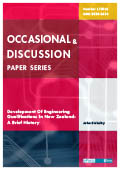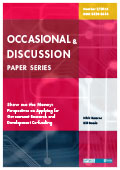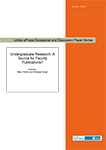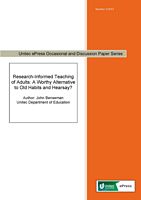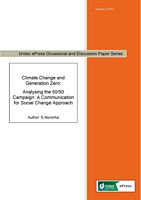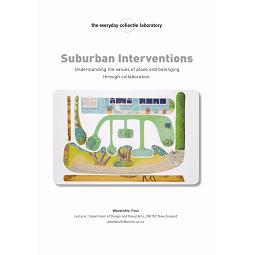Category Occasional and Discussion Papers
Author John Blakeley provides a brief history of engineering qualifications in New Zealand, starting in 1840 through to the present day. Read the paper https://doi.org/10.34074/ocds.027
Authors Arnja Dale, Jessica Walker and John Perrott, write on the use of animal cadavers to teach euthanasia techniques to students studying towards the Certificate in Animal Welfare Investigations at Unitec. The programme attracts a multi-cultural student body. Working with… Continue Reading →
In 2012-14 Unitec Institute of Technology (in partnership with The Innovation Workshop) carried out research into the application process for New Zealand Government Research & Development [R&D] cofunding administered by the Ministry of Science & Innovation (now Callaghan Innovation Ltd)…. Continue Reading →
In 1975 employment in the majority of trades’ areas was dominated by men, and this fact, associated with a significant wage disparity, generated considerable social debate at that time. A number of newspaper articles in New Zealand highlighted the lack… Continue Reading →
Invited to be part of a discussion panel of NZ tertiary learning advisors at a regional hui, the author has written on the main topic: numeracy skills required for current students to be successful with their studies. The paper gives… Continue Reading →
Technology use in higher education is becoming ubiquitous. However, the particular needs of adult migrants and refugees studying English for Speakers of Other Languages (ESOL) necessitate careful course design and teaching practice if technology is not to present an insuperable… Continue Reading →
Over the last two decades, undergraduate students have been encouraged to problem solve in ‘the real world’ in order to construct their own subject knowledge. This paper explores a case study to examine the validity and reliability of students’ findings… Continue Reading →
How and why teachers teach the way they do is central to understanding the impact of education on learners. While many professions have integrated research findings into their practitioners’ practice, education’s record is less consistent in this respect. This paper… Continue Reading →
Climate change does not respect national boundaries or distinguish between big and small polluters. It is one of the truly global problems humanity faces today. In spite of this, there is a reluctance to believe in the existence of climate… Continue Reading →
How can a socially defined project facilitate meaningful knowledge transfer between community, corporate, and institution? In order to address this question, this paper focuses on an ongoing live project in suburban Auckland New Zealand began in 2010, undertaken by a… Continue Reading →
